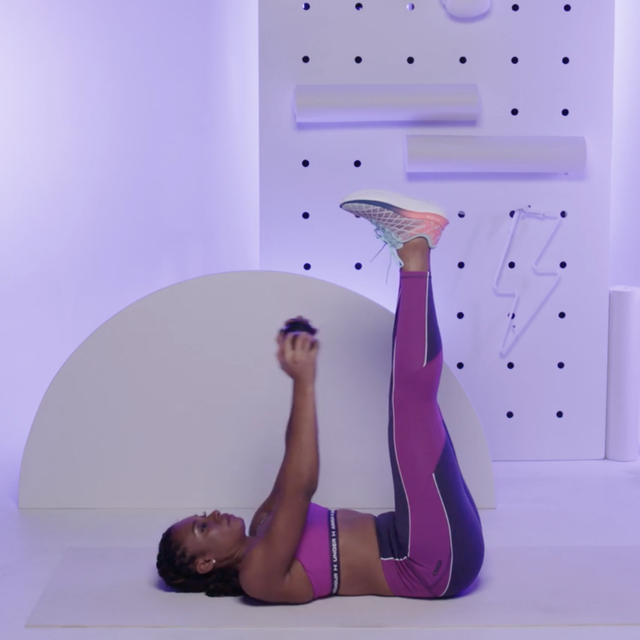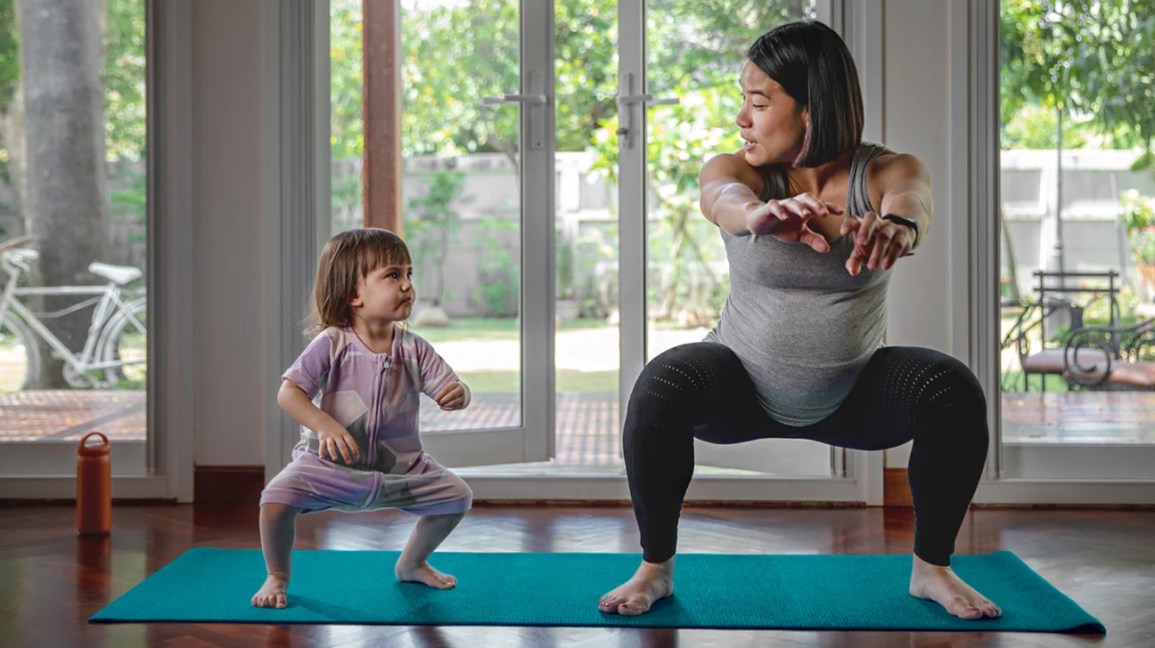Six effective exercises for mental health include yoga, running, swimming, Tai Chi, strength training, and Pilates. They help reduce stress, improve mood, and boost overall well-being.
Exercise is a powerhouse activity that extends beyond physical benefits; it’s also an essential ingredient for maintaining mental health. Engaging regularly in physical exercise can significantly diminish symptoms of depression, anxiety, and stress. It serves as a natural and effective strategy for managing mental wellness, with research backing the positive impact of specific exercises on your psychological state.
Yoga, with its combination of mindful breathing and poses, encourages relaxation and self-awareness. Running, often associated with the ‘runner’s high,’ can enhance mood through the release of endorphins. Similarly, swimming provides a meditative and soothing effect on the mind, while Tai Chi’s gentle movements are ideal for stress reduction and mindfulness. Strength training is potent in improving self-esteem and cognitive function, and Pilates promotes better mental focus and concentration. Incorporating these exercises into your routine can forge a strong mind-body connection and foster a greater sense of mental balance.
:max_bytes(150000):strip_icc()/2584094-GettyImages-1373430267-0dd014333ef949559690be47d8ede04e.jpg)
Credit: www.verywellmind.com
The Mind-body Connection
Mental and physical health are not separate. Our bodies reflect our mental state. Exercise strengthens this link for better health.
Exploring The Link
Physical activity and mental well-being intertwine. A healthy body fosters a healthy mind, creating a positive cycle.
Benefits Of Physical Exercise On Mental Well-being
Exercise boosts mood, reduces stress, and combats anxiety. It also improves self-esteem and sleep quality.
- Enhanced mood: Endorphins release during exercise, creating feelings of happiness.
- Stress relief: Physical activity is a natural stressbuster.
- Improved sleep: Regular exercisers tend to sleep better, aiding overall mental health.
Consistent exercise leads to better mental resilience. This helps in managing everyday stress and life challenges.
Aerobic Activities: The Happy Hormone Emitter
Regular exercise boosts mental health by reducing anxiety, depression, and negative mood. It also enhances self-esteem and cognitive function. Aerobic activities, in particular, are like a burst of sunshine for your brain. They release endorphins, often known as ‘happy hormones’, which act as natural painkillers and mood elevators.
Running For Euphoria
Running is a powerful aerobic exercise that elevates mood and improves overall well-being. Its effects include:
- Stress Reduction: It lowers stress hormones like cortisol and adrenaline.
- Mood Booster: It spikes up the endorphin levels, leading to a runner’s high.
- Improved Sleep: It helps you sleep better, which is crucial for mental health.
Cycling Away From Stress
Cycling stands out as both enjoyable and therapeutic. Consider the following perks:
- It’s a low-impact way to get your heart pumping and mood soaring.
- Outdoor cycling lets you connect with nature, enhancing the calming effect.
- Indoor cycling can be a social activity, creating opportunities to build friendships.
Cycling not only tones the body but also clears the mind, helping to wash away tension and anxiety.
Mindfulness And Movement With Yoga
Yoga unites the body and mind. This practice reduces stress. It boosts mental health. Let’s explore the calming power of yoga.
Yoga Poses For Serenity
Yoga poses can calm the mind. Here are a few for serenity:
- Child’s Pose: Soothes the nervous system.
- Warrior II: Increases focus and stability.
- Tree Pose: Improves balance and mental clarity.
Breathing Techniques For Relaxation
Controlled breaths can deeply relax the mind. Practice these techniques:
| Technique | Benefit |
|---|---|
| 4-7-8 Breathing: | Reduces anxiety, improves sleep. |
| Alternate Nostril Breathing: | Enhances mental clarity, balances mood. |
| Equal Breathing: | Harmonizes the body and mind. |
Strength Training: More Than Muscle
Strength training does wonders for the body. But it also has powerful mental health benefits. Lifting weights can be as good for your brain as it is for your biceps. It’s not just about building muscle. It’s about building a stronger, more resilient mind. In this section, we’ll explore how strength training can be a powerful ally in maintaining mental well-being.
Building Resilience With Weights
Regular strength training teaches the mind to push through challenges. This mental fortitude transfers to other areas of life. Overcoming the resistance of weights can help you deal with life’s pressures.
- Boosts self-esteem with visible progress
- Enhances mood through the release of endorphins
- Sharpens focus and cognitive function
The Psychological Lift Of Lifting
Lifting weights can elevate your mood. It acts like a natural antidepressant. Here’s how:
| Aspect | Benefit |
|---|---|
| Endorphin Release | These “happy” chemicals improve mood and well-being. |
| Confidence Gain | Mastering new skills can make you feel powerful. |
| Stress Relief | Exercise reduces stress hormones like cortisol. |
Dance Therapy: Rhythms For Well-being
Feeling blue or stressed? Dance therapy might just be the uplifting remedy needed. This creative form of expression combines movement and music. It can boost mental health significantly. In this soothing rhythm, body and mind sync to release tension. Therapists often use dance as a powerful tool to improve emotional wellness. Let’s explore how different dance styles can lift spirits and promote emotional healing.
Dance Styles To Elevate Mood
Dancing is not just fun. It alters brain chemistry positively. Here are styles that can enhance your mood:
- Hip-Hop: Energizes the body.
- Salsa: Sparks joy with vibrant steps.
- Ballroom: Increases confidence through elegance.
- Zumba: Combines fitness with dance for a happy buzz.
- Jazz: Encourages self-expression.
- Contemporary: Facilitates deep emotional connections.
Movement And Emotional Release
Movements in dance therapy serve a greater purpose. They allow for an emotional outpouring. Complex emotions find an outlet in physical form. This brings a sense of relief.
| Movement Type | Impact on Emotions |
|---|---|
| Swift Motions: | Cuts through anxiety. |
| Slow Swings: | Calms the turbulent mind. |
| Sharp Hits: | Helps combat anger. |
| Fluid Moves: | Nurtures a sense of freedom. |
Engage in these therapeutic exercises and watch your mental clouds give way to clearer skies.
Outdoor Wonders: Walking And Hiking
Engaging our bodies in outdoor activities like walking and hiking can be a game changer for mental health. Fresh air, natural light, and a change of scenery do wonders for the mind. Embrace the simple joy these exercises bring and watch your stress slip away. Step into the embrace of nature and discover how each step can lead to tranquility and inner peace.
Nature Walks For Stress Relief
Immerse yourself in the calm of nature with regular nature walks. The rhythmic pattern of walking creates a meditative effect. This helps ease the mind. Studies show nature settings reduce stress hormone levels. Let’s learn how:
- Boost Mood: Sunlight and green spaces lift spirits.
- Improve Focus: Natural environments enhance attention.
- Lower Anxiety: Calm surroundings ease anxious thoughts.
The Healing Power Of Hiking
Hiking is not just a physical activity. It’s also a powerful mental health booster. Conquering trails gives a sense of accomplishment. It builds resilience. Elements of hiking beneficial for mental health include:
| Element | Benefit |
|---|---|
| Varied Terrain | Increases mental engagement |
| Natural Beauty | Provides sensory relaxation |
| Elevation Gain | Boosts endorphin levels |
Recovery And Its Importance
Maintaining mental health is vital for overall well-being. Just as we exercise to improve our physical health, recovery plays an essential role in mental health. The body and mind need time to recharge and heal. This section explores effective recovery practices for a healthier mind.
Resting For Mental Recovery
Good mental health demands quality rest. Sleep and relaxation help tranquilize your mind, allowing for better stress management.
- Deep sleep boosts memory and mood.
- Power naps can renew your thinking process.
- Meditation and deep-breathing exercises reduce anxiety.
Take steps to create a restful environment. This includes a comfortable bed, a dark room, and a cool temperature.
Balance Between Activity And Rest
Maintaining a routine that includes both stimulation and downtime is important. It helps to establish a healthy rhythm for your mind.
| Activity | Benefit for Mental Health |
|---|---|
| Exercise | Increases endorphins, improves mood |
| Rest | Allows for mental recovery, reduces stress |
Alternate between different types of activities. Include both physical exercises and relaxation techniques in your routine.

Credit: www.health.harvard.edu

Credit: www.puregym.com
Frequently Asked Questions For 6 Of The Best Exercises For Mental Health
What Are 6 Ways To Boost Your Mental Health?
Stay active with regular exercise. Prioritize quality sleep each night. Maintain a nutritious, balanced diet. Engage in social activities and connect with others. Practice mindfulness or meditation techniques. Make time for hobbies and interests that bring joy.
What Are 5 Forms Of Exercise That Are Beneficial In Lowering Someone’s Stress Level?
Yoga combines physical postures and breathing exercises to reduce stress. Regular aerobic exercises like brisk walking enhance endorphin levels. Tai chi employs gentle movements and mindfulness for relaxation. Strength training can alleviate tension through muscle engagement. Meditation-focused activities like guided imagery promote mental calmness.
What Are 5 Strategies To Improve Mental Health?
Implement regular exercise routines for stress reduction. Prioritize adequate sleep to support emotional regulation. Engage in mindfulness practices like meditation to enhance focus. Foster social connections for a supportive network. Seek professional counseling for personalized mental health strategies.
What Are 5 Exercises That Improve Mental Health?
Regular aerobic exercise, such as walking or cycling, boosts brain health. Yoga enhances mood and mindfulness. Resistance training, like weightlifting, improves cognitive function. Tai Chi fosters relaxation and mental focus. Lastly, dancing boosts endorphin levels, elevating happiness.
Conclusion
Embracing these exercises can transform your mental health journey. Each activity offers unique benefits, enhancing well-being and reducing stress. Remember to tailor your routine to what feels right. Start small; consistency is key. Make mental fitness a priority, and the positive changes will follow.


